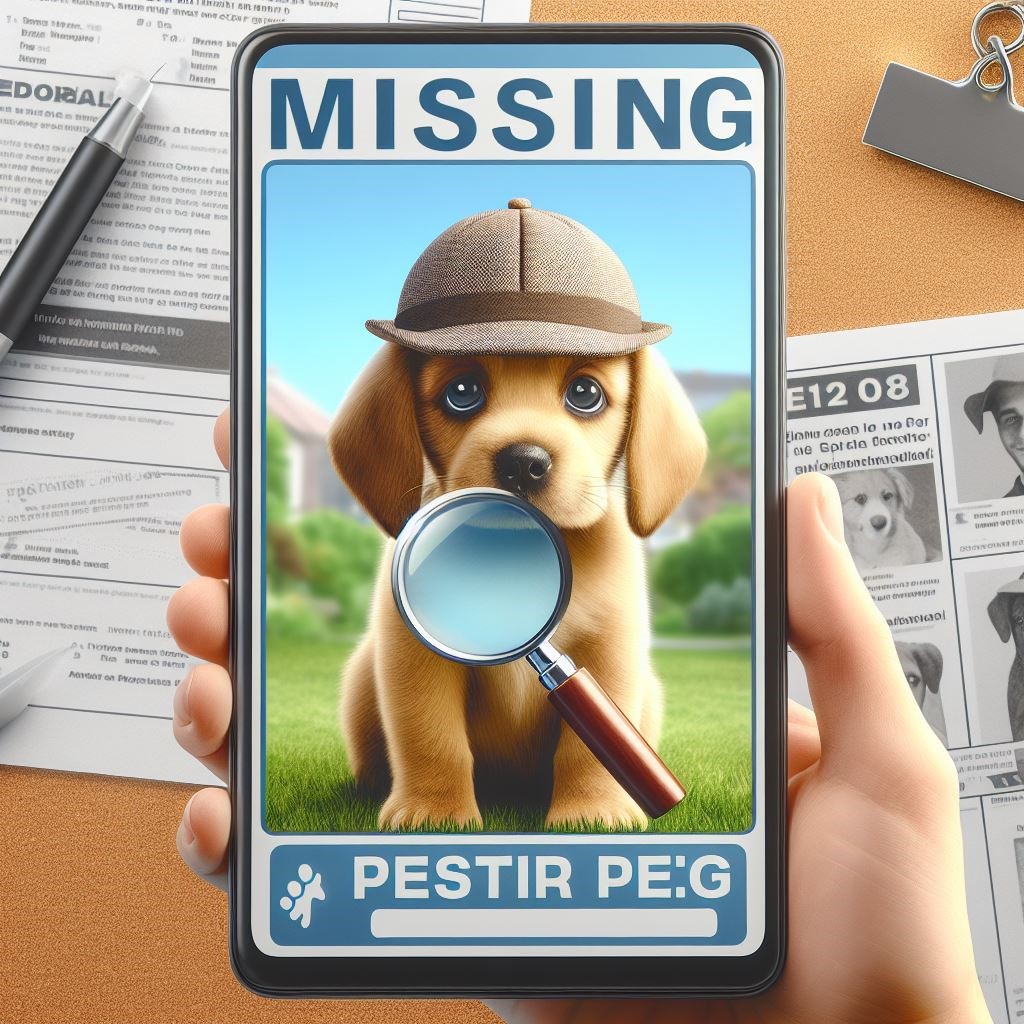Every pet parent’s worst nightmare is the thought of their beloved dog or cat going missing. Whether it’s a curious cat who wandered too far from home, or a playful pup who slipped out the gate, the panic and distress are universal. In these moments, the expertise of a professional lost pet finder or pet detective can be invaluable. But how does one become a professional lost pet finder or pet detective?
Becoming a professional lost pet finder or pet detective involves more than just a love for animals. It requires a blend of compassion, intuition, and investigative prowess.
The Core of Being a Pet Detective
At its core, the role revolves around locating missing pets using a variety of methods, including:
Conducting thorough interviews with pet owners to gather information about the missing animal’s habits, routines, and possible whereabouts.
Utilizing technology such as GPS trackers, social media platforms, and online databases to aid in the search.
Employing traditional search techniques such as distributing flyers, canvassing neighborhoods, and setting up feeding stations to attract lost pets.
Collaborating with local animal shelters, veterinarians, and community members to mobilize search efforts and spread awareness.
Specialization of Training
Employing specialized training and techniques to interpret animal behavior and track elusive pets. While there is no formal educational requirement to become a pet detective, acquiring relevant knowledge and skills can significantly enhance your effectiveness in the field. Consider pursuing courses or certifications in animal behavior, search and rescue techniques, and investigative methods. Additionally, gaining hands-on experience through volunteering at animal shelters or assisting experienced pet detectives can provide invaluable insights and mentorship. To excel in the role of a professional lost pet finder or pet detective, certain skills are indispensable:
Empathy and Compassion: Dealing with distraught pet owners requires a compassionate and understanding demeanor. Empathizing with their emotions while providing reassurance and support is essential.
Critical Thinking: Solving the puzzle of a missing pet requires logical reasoning and analytical skills. Being able to assess various clues and information to form a cohesive search strategy is very important.

Did you find this article useful? Would you like 100% free access to more articles like these, and free access to over 5,000 vetted pet care service professionals throughout the United States? Sign up here for a free Petworks account, and take 10% off your first booking, on us!
Concise Communication and Other Factors
Communication: Effective communication is vital for coordinating search efforts, interacting with pet owners, and collaborating with other professionals. Clear and concise communication can streamline the search process and facilitate successful outcomes.
Patience and Persistence: Searching for a lost pet can be a time-consuming and sometimes frustrating endeavor. Maintaining patience and persistence in the face of challenges is key to persevering until the pet is found.
Adaptability: Every lost pet case is unique, requiring flexibility and adaptability in approach. Being able to adjust strategies based on changing circumstances is essential for success.
Networking plays a pivotal role in the world of pet detection. Establishing connections with animal shelters, veterinarians, pet rescue organizations, and local community groups can expand your reach and resources. Collaborating with fellow pet detectives and sharing insights and techniques can also enrich your skill set and enhance your effectiveness in locating lost pets.
Advancements in technology have revolutionized the field of pet detection. Harnessing the power of social media, online databases, and GPS tracking devices can significantly augment your search capabilities. Creating digital flyers and utilizing platforms like Facebook and Nextdoor can rapidly disseminate information and rally community support. GPS trackers attached to collars or harnesses can provide real-time location data, enabling more efficient tracking of lost pets.
Effective case management and documentation is essential for organizing and prioritizing search efforts. Keeping detailed records of all interactions, sightings, and search activities can help track progress and identify patterns. Utilizing case management software or apps designed specifically for lost pet recovery can streamline this process and ensure nothing falls through the cracks.
Applying to join a pet care marketplace platform such as Petworks will help you find pet parents in need who would like to book you and pay you for your services.
a pet care marketplace platform such as Petworks will help you find pet parents in need who would like to book you and pay you for your services.
Becoming a Pet Detective
Becoming an ace pet detective is a challenging yet immensely rewarding endeavor. By honing your skills, leveraging technology, and building a strong network of support, you can make a meaningful difference in the lives of pet parents and their furry companions. With dedication, compassion, and perseverance, you can help reunite lost pets with their families and bring comfort and relief to those in distress. So, if you have a passion for animals and a desire to make a positive impact, consider embarking on this noble journey and becoming a beacon of hope for lost pets everywhere.
About Us
 In 2021, Dr. Marty Goldstein DVM joined the pet care platform Petworks as an advisor in its Animal Nutrition care division. Dr Marty Nature’s Blend is on a mission to help your pets live their healthiest lives possible. Dr. Marty’s pet nutrition expertise and guidance has helped Petworks evolve and become the preeminent animal and pet nutrition consultation service for pet parents in North America.
In 2021, Dr. Marty Goldstein DVM joined the pet care platform Petworks as an advisor in its Animal Nutrition care division. Dr Marty Nature’s Blend is on a mission to help your pets live their healthiest lives possible. Dr. Marty’s pet nutrition expertise and guidance has helped Petworks evolve and become the preeminent animal and pet nutrition consultation service for pet parents in North America.
 In 2022, Blue Buffalo Founder Bill Bishop Jr. joined Petworks as Senior Advisor in our Animal Nutrition Care Division. Bill brings his extensive expertise in pet food innovation and business leadership. His guidance helps Petworks enhance our pet nutrition service offerings, helping to ensure that pet parents throughout the world receive trusted, science-backed nutritional support for their dogs, cats, and animals.
In 2022, Blue Buffalo Founder Bill Bishop Jr. joined Petworks as Senior Advisor in our Animal Nutrition Care Division. Bill brings his extensive expertise in pet food innovation and business leadership. His guidance helps Petworks enhance our pet nutrition service offerings, helping to ensure that pet parents throughout the world receive trusted, science-backed nutritional support for their dogs, cats, and animals.
Petworks Co-Founder Kevin Kinyon is a life-long animal lover who works tirelessly to improve the lives of pets and their parents. Human and animal qualities he values most are integrity, humor, and empathy.



